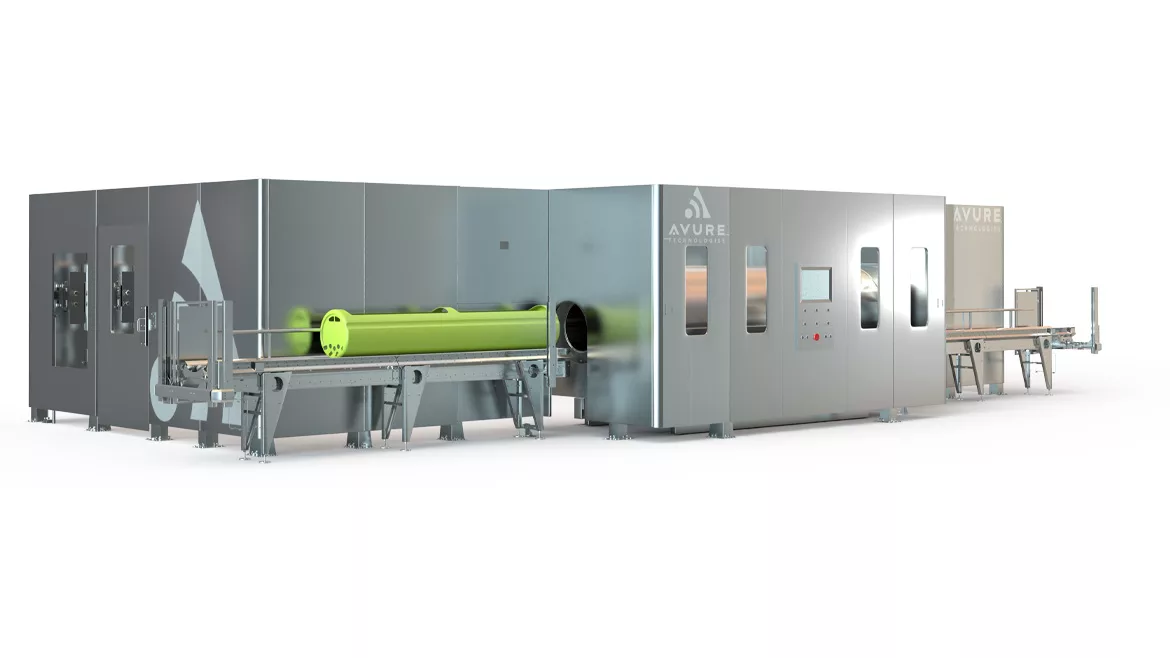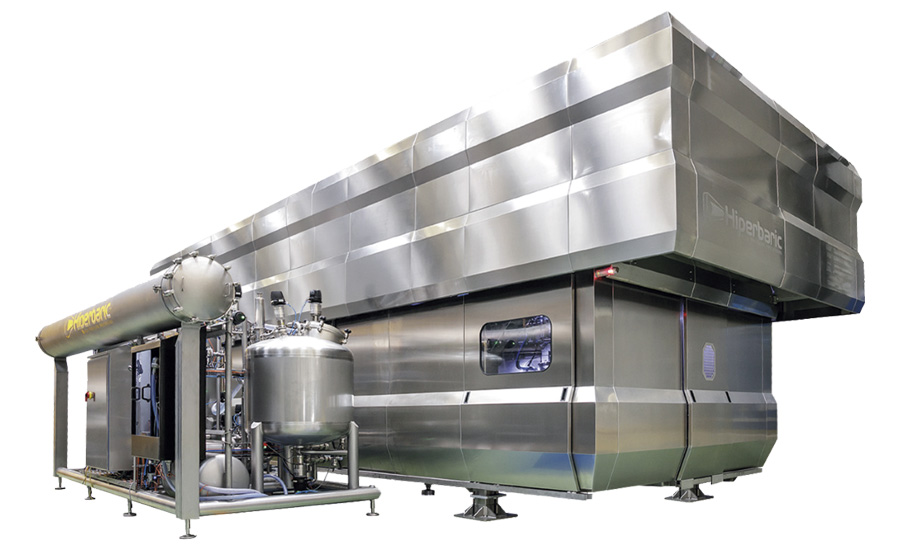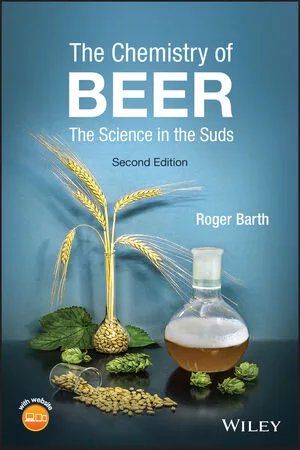Operations
HPP technology appeals to the masses in beverage industry
Numerous benefits, new trends are leading to HPP use

Image courtesy of JBT Avure
HPP isn’t the latest texting acronym, it’s a form of preservation. High pressure processing (HPP) is a non-thermal form of food and beverage preservation that assures food safety, an increased shelf life and optimum product freshness while inactivating foodborne bacteria that is harmful.
Tom Woodward, chief commercial officer at HPP service provider Universal Pure, Lincoln, Neb., says that brands and retailers are pursuing products with long shelf lives that are “fresh tasting, clean label [and] safe.”
“From an industry perspective, these are the primary trends driving the increasing use of HPP,” Woodward says. “Products that can be merchandised in the ‘perimeter’ of the store, where they can attract discerning consumers and shoppers willing to pay a premium, are the types of products where HPP can add significant value and even reduce the cost of shrink for the retailer.”
From a consumer’s perspective, Woodward says people are looking for products that are safe and great-tasting, without the use of preservatives or artificial colors. And as consumers become more educated about the beverages they drink, he suspects they’ll desire “items with short ingredient lists, as well as products that they perceive as fresh and healthy.”
Dr. Errol Raghubeer, senior vice president of HPP technology and science at JBT/Avure, Middletown, Ohio, agrees that consumers are looking for safe, healthier products, which in turn, drives the need for HPP beverages. He suspects that health and immunity-boosting beverages will “be the next major category to take advantage of HPP.”
“The fact that HPP has little to no effects on nutritional components and natural immune components is a major drive in this category of beverages,” Raghubeer says.

Image courtesy of Hiperbaric USA
Benefits beyond beverages
Universal Pure’s Woodward notes that any beverage company can take advantage of HPP technology.
“In general, nearly any premium-focused beverage category looking to extend refrigerated shelf-life, ensure safe distribution and maintain high-quality taste and appearance can benefit from HPP,” he says. “We see robust growth and continued opportunities in fruit based, fruit and vegetable blends, natural energy and nut-based beverages. Further, cold-pressed coffee, teas and grain-based beverages are starting to emerge as prime categories.”
HPP technology also offers many benefits to manufacturers, the primary one being food safety that doesn’t destroy taste or nutrients, Raghubeer asserts. And the extended shelf life is a “major economic benefit” to beverage manufacturers, “with shelf life of over four months, compared to a week of untreated fresh juice beverage,” he says.
“This not only opens new geographical markets, but provides beverage manufacturers the opportunity to source raw materials in the peak of season when price is more favorable,” Raghubeer adds.
Woodward also credits extended shelf life as a big advantage for manufacturers who use HPP technologies. With HPP products, beverages aren’t exposed to thermal processing, so their appearance, flavor and vitamin content remains the same, he says.
Progression of HPP technology
As HPP’s appeal grows, experts note that this has come as improvements to the technology have intrigued beverage-makers.
Director of Doral, Fla.-based Hiperbaric USA, Roberto Peregrina, reveals that three major advancements have propelled Hiperbaric’s HPP technology: automation, bulk technology and juice on tap. One company that uses Hiperbaric’s automation equipment for cold-pressed juices reported the advantages back to Hiperbaric.
“The company reports the following benefits, including 15% improvement in overall equipment effectiveness, 90% reduction in injuries, 50% reduction in transportation waste and 50% reduction in line labor,” Peregrina says. “As a post-packaging process, HPP requires the loading of packaged products into baskets, a manual process. Pre-feeder stations and robotic unload solutions allow manufacturers to improve processing efficiencies, while reducing potential manual labor injuries and costs.”
The bulk technology from Hiperbaric, is “based on a revolutionary concept in which beverages are processed in-bulk prior to bottling,” Peregrina notes. The process reduces steps for manufacturers and offers high productivity.
JBT/Avures’ Raghubeer echoes similar sentiments about the benefits of bulk systems.
“The major significant advancement in HPP is the ability to process beverages in bulk systems and fill into packages of choice such as glass, paper-based containers following HPP treatment,” he says. “JBT/Avure has developed such a system called FlexiBulk. Beverage manufacturers can now use containers [that are] more environmentally friendly, and not be limited to only flexible plastic containers such as PET and HDPE.”
Hiperbaric’s Peregrina says that the company has partnered with Petainer, which provides juice in kegs that can undergo HPP. Then, juice manufacturers can dispense juice on tap “at grocery stores, festivals, trade shows and other events.”
These factors have all played a part in the growing adoption of HPP.
“The widespread growth of HPP technology, both in practice and geographically, has ensured this technology is available to brands and manufacturers nationwide,” Universal Pure’s Woodward says. “For example, Universal Pure now has seven HPP facilities across the country. All of our facilities maintain at least two HPP systems, along with other value-added capabilities, such as bottling, case-packing, sleeving and banding, cold storage and more to complement the use of HPP.”
Going forward with HPP
With the addition of improvements in reliability, HPP systems have “significantly increased in parallel with reduction of production cost,” JBT/Avure’s Raghubeer says. Many beverage manufacturers who cannot afford their own HPP system are utilizing the fast-growing HPP service providers/tollers, which they pay to have their product treated, he notes.
“Many companies use tollers to give them the ability to focus resources on other parts of their business without capital outlays to buy a HPP unit,” Hiperbaric’s Peregrina adds. “It also gives a quick start to companies testing marking concepts. Still, others prefer to purchase their own HPP machine if they have committed to using HPP in their business, want to control all aspects of the business and have the space and resources to purchase their own machine.”
As far as consumer trends go, Raghubeer suspects the need for HPP beverages will continue to rise.
“Although there are a number of functional beverages produced with HPP, the need for more of these types of beverages is increasing,” he says. “This may be somewhat a consequence of the current global public health environment where consumers are looking for natural ways to improve immunity and health.”
Universal Pure’s Woodward says he has “no doubt” that premium beverage products “will continue to capitalize on the benefits associated with HPP technology.”
“As brands look to focus more of their efforts and resources on the front end of their businesses, HPP outsourcing partners like Universal Pure can even incorporate more complementary services to HPP, such as blending, bottling and co-packing to support these brands,” he says.
Looking for a reprint of this article?
From high-res PDFs to custom plaques, order your copy today!







